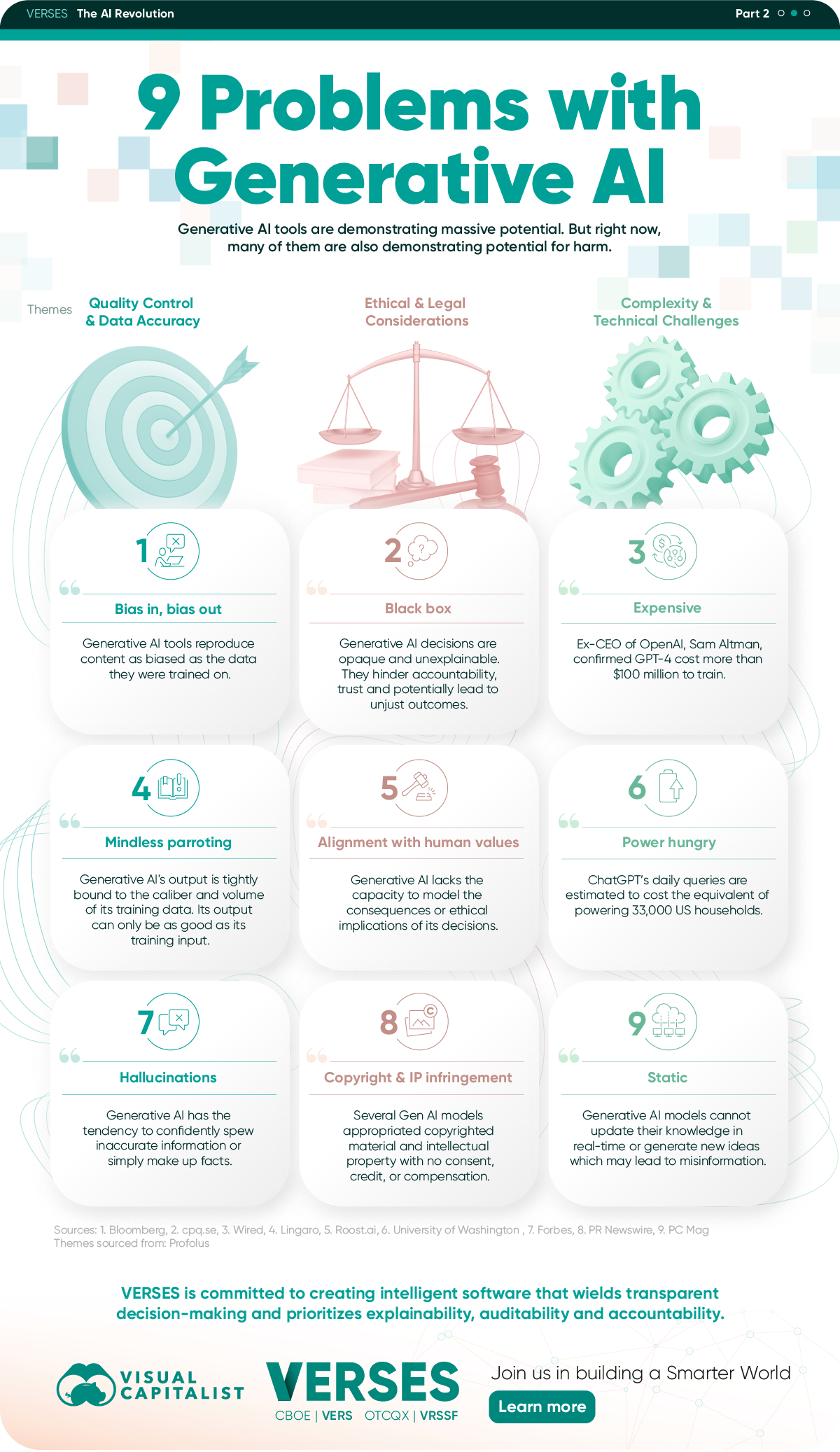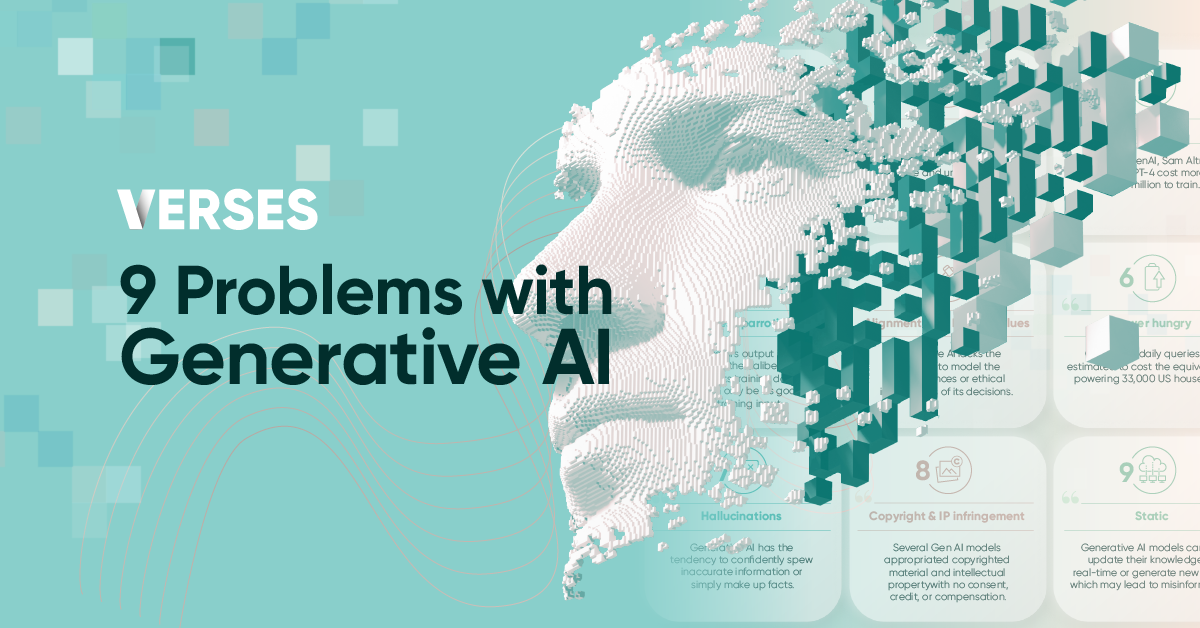The challenges of using generative AI primarily revolve around quality issues, ethical concerns, and legal considerations.
Quality Challenges:
- Generative AI models can suffer from a decline in output quality over time if they rely heavily on synthetic data without fresh, real-world data input. This phenomenon, termed Model Autophagy Disorder (MAD), leads to increasingly uniform, less diverse, and sometimes distorted outputs, including visual artifacts and reduced creativity.
- AI outputs can also include inaccuracies or "hallucinations" because these models generate content based on patterns in training data without verifying truthfulness. This results in plausible but sometimes false or misleading information.
- Poor quality or biased training data further degrade AI performance, causing incomplete or inaccurate outputs. Users may overestimate AI accuracy, leading to the "It's Perfect" effect, which can cause errors and reputational damage, especially for non-native language users.
Ethical Challenges:
- Bias and fairness: Generative AI inherits biases present in training data, which can perpetuate discrimination, such as racial or gender bias in legal or policing contexts. This raises concerns about fairness and justice in AI-assisted decision-making.
- Confidentiality and data privacy: Using generative AI in sensitive fields like law risks exposing confidential client information. Even anonymized data can sometimes be reverse-engineered, violating privacy laws such as GDPR.
- Transparency and accountability: AI decision-making processes are often opaque, making it difficult to understand or challenge AI-generated outcomes. This lack of explainability undermines trust, especially in critical sectors like finance and healthcare.
- Distribution of harmful content: AI can unintentionally generate offensive, misleading, or harmful content, which can damage reputations or cause social harm if not properly managed.
Legal Considerations:
- Intellectual property (IP) issues arise because AI-generated content may infringe on copyrights or create uncertainty about ownership rights. This includes concerns about unlicensed use of training data and the legal status of AI-created works.
- Data protection laws impose strict requirements on how data used by AI is handled, stored, and processed to prevent breaches of confidentiality and privacy.
- Organizations face potential legal penalties if AI use leads to breaches of IP, privacy, or confidentiality obligations.
In summary, maintaining high-quality outputs requires continuous real-world data updates and careful data management. Addressing ethical challenges demands mitigating bias, ensuring transparency, protecting privacy, and preventing harmful content. Navigating legal risks involves clarifying IP ownership, complying with data protection laws, and safeguarding confidential information.




















WebSeoSG offers the highest quality website traffic services in Singapore. We provide a variety of traffic services for our clients, including website traffic, desktop traffic, mobile traffic, Google traffic, search traffic, eCommerce traffic, YouTube traffic, and TikTok traffic. Our website boasts a 100% customer satisfaction rate, so you can confidently purchase large amounts of SEO traffic online. For just 40 SGD per month, you can immediately increase website traffic, improve SEO performance, and boost sales!
Having trouble choosing a traffic package? Contact us, and our staff will assist you.
Free consultation